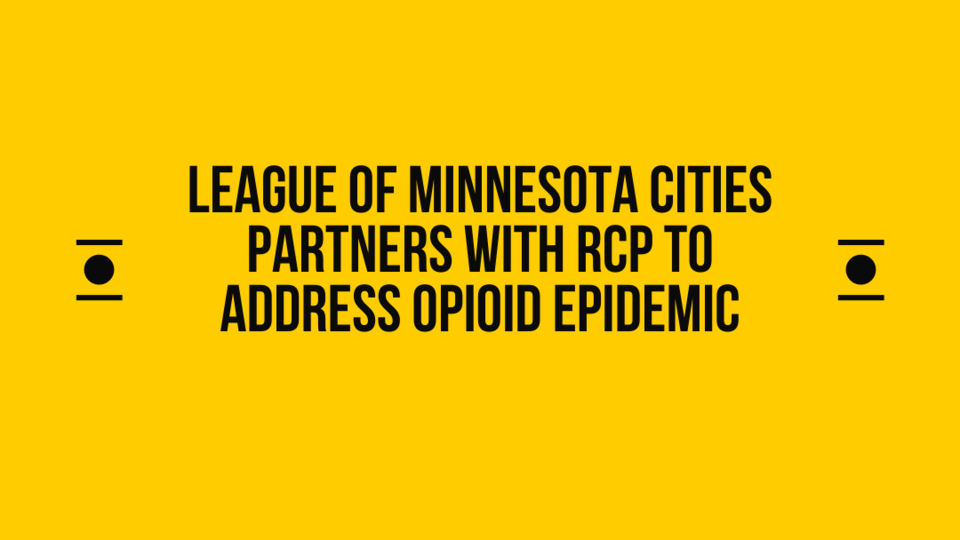Cities in Minnesota want to know how best to respond to the opioid epidemic that is impacting communities across the state. According to the Minnesota Department of Health, 422 people in Minnesota died from an opioid overdose in 2017 and 2,037 experienced a non-fatal overdose.
This fall, the League of Minnesota Cities (LMC) reached out to RCP to discuss how a partnership with the University of Minnesota could help the organization develop resources for its member cities to combat the growing crisis. Beginning in January 2020, LMC Deputy Director Luke Fischer will partner with graduate students in several departments at the University of Minnesota to research actions that cities can take to address the crisis. Students will identify cities in Minnesota and across the nation that are taking action to address the epidemic and glean best practices that can be broadly applied.
We spoke with Fischer recently to learn more about the impetus for the project, why the League is partnering with RCP, and what the League hopes to gain. This interview has been edited for length and clarity.
What significance does the opioid project have for the League of Minnesota Cities and why was it selected to be included in the RCP partnership?
Fischer: Communities are reporting an increased demand for services to respond to the crisis—which is impacting emergency services in cities, placing demands on health and human services in counties, and causing general strain in homes. Increasingly, cities are looking to the League of Minnesota Cities for ideas, resources, and best practices to respond appropriately and effectively.
Developing a toolkit for an emerging issue is central to the League’s purpose—to support our member cities. The opioid project is part of the League’s strategic plan and is high profile for the organization. The information compiled through the project will be included in an online toolkit so cities can better learn and understand what is working around the state and the country, and what is less impactful. This toolkit will live online and will be updated as new and emerging trends unfold—and this project will be the foundation for future development.
Why did you decide to connect with the Resilient Communities Project?
Fischer: The League has always maintained rigorous standards in its research and provides thoughtful advice to our members. Very much in that spirit, the League has sought out opportunities to partner with first-class academic institutions to advance our work, knowing that we can find alignment in standards and a belief in the common good, with the best and brightest minds studying public service.
We decided to partner with RCP because we know that we can find forward-thinking and thoughtful students to help advance a significant initiative.
What will successful collaboration with students look like?
Fischer: Successful collaboration with students will play to the students’ strengths and the League’s strengths. The League has strong relationships with its members, and we are excited to facilitate a qualitative discussion between those leading on the topic of opioids in cities and our RCP partners.
From there, success will be an honest assessment of what is working and what is not working in the field. This will require the students to think critically and ask the right questions. We will know we have been successful from a member perspective when we hear that components of the toolkit are being deployed in the field.
